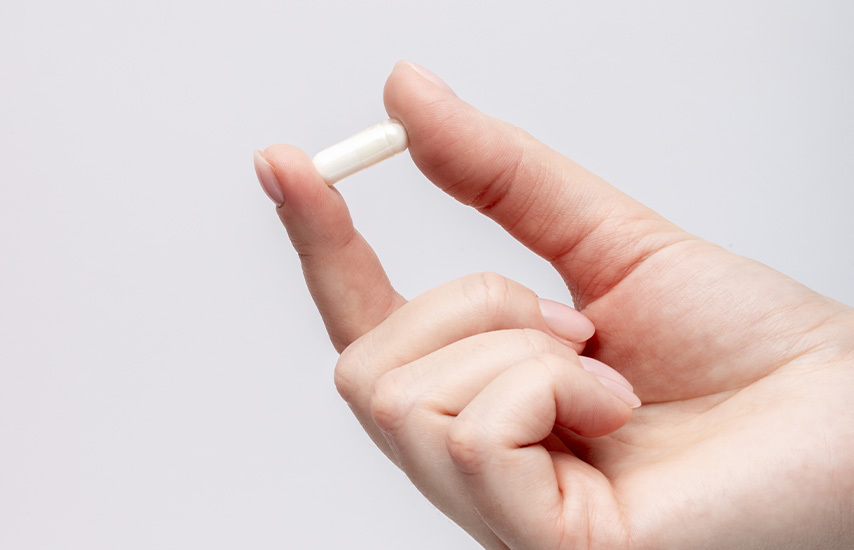How Long Should You Take Probiotics?

Navigating the realm of probiotics can be overwhelming, especially when determining the ideal duration of their usage. Probiotics, often hailed as the superheroes of gut health, are live microorganisms that offer many benefits for your digestive system and overall well-being. But with so many factors to consider, understanding the optimal duration of probiotic usage is crucial for maximizing their effectiveness. In this article, we’ll explain the key points of taking probiotics.
Understanding Probiotics
Probiotics are beneficial bacteria that reside in your gut and play a vital role in maintaining a healthy microflora balance. They support your digestive health, boost your immune system, and contribute to overall wellness. Whether consumed through probiotic-rich foods like yogurt and kefir or dietary supplements, probiotics work symbiotically with your body to promote optimal gut function and combat harmful pathogens.
As we delve deeper into the realm of probiotics, it becomes apparent that the duration of probiotic usage can vary significantly from person to person. Factors such as individual health goals, specific health conditions, and the body’s response to supplementation all influence how long one should continue taking probiotics.
While some individuals may benefit from short-term probiotic use to address acute issues like acute infectious diarrhea, others may require long-term supplementation to support overall gut health. It’s essential to consult with a healthcare professional to evaluate your unique needs and determine the most suitable duration for probiotic use.
Duration of Probiotic Usage

Determining the duration of probiotic usage is a nuanced process that depends on several factors. Here, we delve into the various considerations surrounding the duration of probiotic use and provide insights to help you make informed decisions:
- Factors influencing duration. Several factors influence how long one should take probiotics, including individual health goals, specific health conditions, and the body’s response to supplementation.
For those seeking relief from transient digestive issues or acute infectious diarrhea, short-term probiotic use may suffice to restore gut balance and alleviate symptoms.
Conversely, individuals with chronic conditions like irritable bowel syndrome or those aiming to maintain overall gut health may benefit from long-term supplementation to sustain beneficial microflora levels.
- Short-term vs. long-term usage. The decision between short-term and long-term probiotic usage hinges on the desired outcomes and underlying health concerns.
Short-term supplementation may be appropriate for addressing immediate issues or providing temporary support during times of stress or illness.
On the other hand, long-term probiotic use is often recommended for individuals looking to maintain a healthy gut microbiome, support immune function, or manage chronic conditions. Ultimately, the optimal duration of probiotic usage varies from person to person and should be tailored to individual needs and preferences.
Optimal Usage Strategies

Achieving maximum benefits from probiotic supplementation relies on choosing the right product and adopting optimal usage strategies. Here, we offer practical guidance to help you make the most of your probiotic regimen and enhance its effectiveness.
- Timing of consumption. When it comes to timing, the optimal probiotic consumption strategy may vary depending on individual preferences and lifestyle factors.
Some experts suggest taking probiotics before meals to ensure better survival through the stomach’s acidic environment, while others advocate for consumption with food to minimize potential gastrointestinal discomfort.
Experimenting with different timing options can help determine what works best for your body and digestive system.
- Selecting the right products. Choosing the right probiotic supplements or foods is essential for reaping the benefits of supplementation.
Look for products containing well-researched probiotic strains like Lactobacillus acidophilus, Bifidobacterium bifidum, and Lactobacillus rhamnosus, which have been associated with various health benefits, including improved digestive health and strengthened immune function.
Additionally, consider factors such as colony-forming units (CFUs), shelf stability, and other beneficial ingredients like prebiotics for enhanced effectiveness.
- What about Bioma, a probiotic supplement? While achieving optimal gut health through diet alone can be challenging, Bioma offers a convenient solution with its range of high-quality probiotic supplements.
Designed to provide a potent blend of beneficial bacteria, Bioma products ensure consistent and reliable support for your gut microbiome.
With Bioma, you can enjoy the benefits of probiotic supplementation without the hassle of sourcing and consuming probiotic-rich foods, making it easier to maintain a healthy gut and overall well-being.
When taking Bioma, you’ll also increase your prebiotic fiber consumption and benefit from postbiotics like fat-burning properties.
Maximizing Probiotic Benefits

Consistent probiotic usage is key to unlocking the full spectrum of benefits associated with these beneficial microbes. By incorporating probiotics into your daily routine, you can support various aspects of your health and well-being, ranging from digestive health to immune function.
Here, we delve into the benefits of maintaining a regular probiotic regimen and how it can positively impact your overall health:
- Enhanced digestive health. One of the probiotics’ most well-known health benefits is their ability to promote digestive health by restoring balance to the gut microbiome. By replenishing healthy bacteria levels and inhibiting harmful bacteria growth, probiotics help maintain a harmonious environment within the digestive tract. This can improve stool consistency, reduce gas and bloating, and enhance overall gastrointestinal comfort.
- Fortified immune system. In addition to supporting digestive health, probiotics are crucial in bolstering the immune system and defending against harmful pathogens. Studies have shown that regular consumption of probiotics can help modulate immune responses, reduce the risk of upper respiratory infections, and promote faster recovery from illness. By maintaining a healthy balance of gut flora, probiotics contribute to overall immune health and resilience.
- Balanced gut microbiome. A diverse and thriving gut microbiome is essential for optimal health, and probiotics are instrumental in achieving and maintaining this balance. Introducing beneficial microbes into the gut, probiotics help diversify the microbial ecosystem, leading to a more robust and resilient gut microbiome. This, in turn, can have far-reaching implications for overall health, including improvements in nutrient absorption, mood regulation, and even weight management.
Potential Risks and Precautions
While the health benefits of probiotics are well-documented, it’s essential to approach their usage with caution and awareness of potential risks. Here, we’ll discuss some precautions to consider when incorporating probiotics into your daily routine and how to mitigate any associated risks effectively.
- Avoiding excessive consumption. One of the most common pitfalls of probiotic usage is consuming too many probiotics, which can lead to gastrointestinal discomfort and digestive disturbances. Following recommended dosages is essential.
- Selecting the right products. Choosing the appropriate probiotic supplement or fermented foods ensures optimal results and minimizes the risk of adverse reactions. Not all probiotic products are created equal, and selecting high-quality, reputable brands can make a significant difference in the effectiveness and safety of supplementation.
- Considerations for individuals with specific health conditions. Individuals with certain health conditions, such as weakened immune systems or intestinal tract disorders, may need additional caution when taking probiotics. Additionally, individuals taking medications or undergoing medical treatments should seek guidance from their healthcare provider to ensure that probiotics are safe and appropriate.
- Understanding probiotic strains. Not all probiotic strains are created equal, and different strains may have varying effects on the body. It’s essential to choose a probiotic supplement tailored to your needs. For example, certain strains may be more effective at treating acute infectious diarrhoea or supporting digestive health, while others may have specific benefits for immune function or overall well-being.
Conclusion
Regular consumption of probiotics, whether through probiotic foods or a daily probiotic supplement, can yield positive probiotic supplementation results and support digestive health. In determining how long to take probiotics, it’s essential to consider individual needs and health objectives, ensuring consistent intake for optimal benefits.
Sources
- Sanders, M. E., Merenstein, D., Merrifield, C. A., & Hutkins, R. (2018). Probiotics for human use. Nutrition bulletin, 43(3), 212-225.
- Goldin, B. R. (1998). Health benefits of probiotics. British Journal of Nutrition, 80(S2), S203-S207.
- Snydman, D. R. (2008). The safety of probiotics. Clinical infectious diseases, 46(Supplement_2), S104-S111.
Related articles



